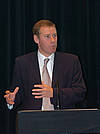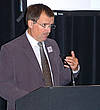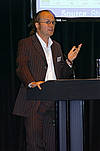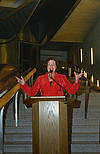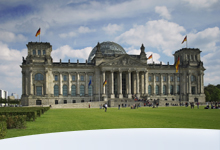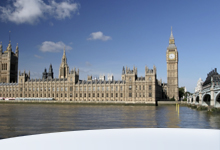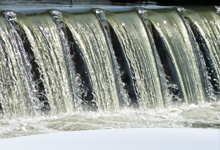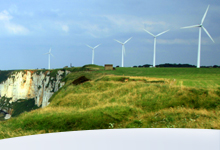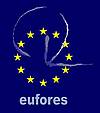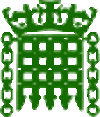Become a member
Join EUFORES here.
VI. Inter-Parliamentary Meeting on Renewable Energy and Energy Efficiency
Edinburgh, UK, 6-8 October 2005
Parliamentarians call for a European Renewable Energy and Energy Efficiency Strategy.
Press Release 10 October 2005 - Edinburgh Declaration – Members of Parliaments across Europe are calling for strengthening the European renewable energy and energy efficiency strategy (REEES) - aim of 100% energy supply from renewable energy sources – First step mandatory target of 25% renewable energy consumption by 2020 in combination with energy efficiency measures
Members from more than 20 European Parliaments pushed the button for renewable energy and energy efficiency measures in their Edinburgh Declaration at the 6th Inter-Parliamentary Meeting on renewable energy and energy efficiency in Edinburgh last weekend. The meeting was initiated by EUFORES (European Forum for Renewable Energy Sources).
"I am very happy, that a broad, cross party coalition of Parliamentarians across Europe is supporting renewable energy and energy efficiency measures. The Declaration of Edinburgh is a milestone for pushing renewables and energy efficiency. We as political decision makers have to set the right framework now to further support this development, at the European and national level. Only renewables can provide Europe with clean energy in the near future. Sooner or later everyone has to take into account that fossil fuels are running out", said Mechtild Rothe, Member of European Parliament and President of EUFORES.
The Parliamentarians called therefore in a first step for a mandatory target of 25% renewable energy consumption by 2020 in the European Union, and the implementation of the necessary measures, including energy efficiency gains. As consequence of the running out of oil, gas, coal and uranium and the related price increases, renewables have to be seen as the only competitive energy alternative in the mid and long term.
"The message from us is clear. Renewable energies are the single infinite energy source, available everywhere. In future we anyways will have no alternative to a 100% energy supply by renewables. The sooner we start deploying renewables large-scale, the more economically viable it will be. Renewables require stable legal frameworks. As all relatively new technologies all 21 different renewable energy technologies still have a huge costs saving potential through economies of scales," said Claude Turmes, Member of European Parliament, Vice-President EUFORES.
Costs for renewables have been decreasing and will continue to do so. The costs for wind energy power for instance have been decreasing in the last 10 years by 80%.
"You only have to pay for the technology, not for the fuels, except for biomass. Europe could avoid importing energy products with volatile and increasing prices. Particularly for developing countries without any grid structure decentralised renewable electricity production will be the only realistic option", said Marc Timmer, Director of EUFORES.
Still 2 Billion people are living without any electrification.
At the meeting, the Parliamentarians agreed that, renewable heating and cooling needs special attention. With 40% the heating and cooling sector is the highest consumer of primary energy products in Europe.
Furthermore they called for
- coordinated actions in order to overcome significant existing barriers to the further development of RES – electricity such as grid related and administrative barriers
- fair market conditions
- analysis of the overall environmental impacts of fossil and nuclear energy and of related external costs
- exploiting the potential of bioenergy and biofuels in conjunction with sustainable agriculture and forestry and sustainable management of waste within the CAP and the EU waste strategy
- for binding national energy efficiency targets within the framework of the proposal for a Directive on energy efficiency and energy services
- increase of the research budgets for renewable energy and energy efficiency. The Parliamentarians consider it as unacceptable that only 8.2% of the overall energy research budget of the OECD counties is allocated to renewable energy
EUFORES organised the 6th Inter-Parliamentarian Meeting in cooperation with PRASEG (Parliamentarians renewable and sustainable energy group).
The Parliamentarians ask EUFORES to spell out the details of a renewable energy and energy strategy called REEES. In the field of renewable energy the strategy should cover the fields of electricity, heating, cooling and transport.
In the field of energy efficiency it should covers electrical appliances, buildings (including housing), industrial processes and the transport sector.
Here you can download the declaration of Edinburgh in English, French Spanish and German.
